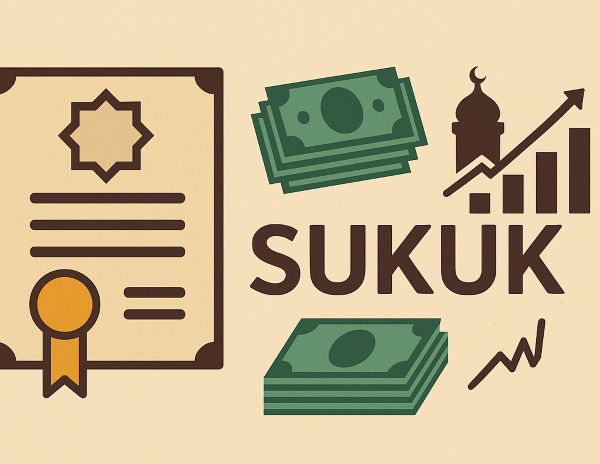DMO Eyes N300bn in 7th Sovereign Sukuk
…As Infrastructure-Backed Islamic Bond Deepens Market, Spurs Development

In a decisive step to consolidate gains in alternative financing and plug Nigeria’s widening infrastructure gap, the Debt Management Office (DMO) on Monday hosted an investor engagement session in Abuja to unveil its latest foray into the Islamic finance space — the N300 billion Series Seven Sovereign Sukuk issuance.
This latest tranche continues the strategic rollout of non-interest bearing financial instruments targeted at both domestic and international ethical investors. Since the debut of Nigeria’s Sukuk programme in 2017, the DMO, under the stewardship of Director-General Patience Oniha, has carved a niche in deploying Sharia-compliant instruments for capital formation — particularly in the delivery of critical public infrastructure.
“Sukuk has become the product of choice for non-interest investors and has continued to enjoy remarkable subscription levels,” Oniha stated, affirming its dual purpose of deepening the local capital market while providing a sustainable funding window for the Federal Government’s capital expenditure needs.
Seven Years of Impact: From Concept to Concrete
From the modest N100 billion debut in September 2017, which was oversubscribed at N105.9 billion, to the cumulative N1.09 trillion raised across six issuances by December 2023, the Sukuk programme has demonstrated the power of faith-based finance to deliver real economic value. According to the DMO, the funds mobilised thus far have been deployed to construct or rehabilitate over 4,100km of roads and nine key bridges across Nigeria’s six geopolitical zones and the Federal Capital Territory (FCT).
Beyond physical infrastructure, the socio-economic ripple effects have been considerable: reduced travel time, enhanced road safety, thousands of jobs created, and expanded access to education, health, and agricultural markets, particularly in underserved rural communities.
“The Sukuk is not just a financing tool; it is a nation-building instrument,” Oniha emphasized. “Its project-tied nature ensures transparency, accountability, and investor confidence.”
Financial Inclusion Meets Fiscal Innovation
The structured nature of Sukuk — where funds are directly tied to specific, identifiable projects — offers a compelling value proposition. It meets the needs of ethical investors seeking both social impact and steady returns, with the added appeal of contributing to Nigeria’s developmental agenda.
Series Seven is expected to maintain the standard structure: a seven-year tenor, a rental (profit) rate of 19.75%, payable bi-annually, and a bullet repayment of principal at maturity. This ensures predictable cashflows for investors while the government benefits from medium-term funding for critical capital projects.
Importantly, the Sukuk remains a direct obligation of the Federal Government, offering strong credit backing and reinforcing investor confidence.
Private Sector Collaboration and Oversight
Key financial advisers and issuing houses involved in this round include Buraq Capital Limited and Greenwich Merchant Bank, among others. According to Attahiru Machido of Buraq Capital, rigorous supervision of Sukuk-funded projects remains a cornerstone of the issuance model.
“We ensure the roads and assets financed with Sukuk proceeds meet not just technical specifications, but also longevity targets to justify the investment,” Machido said.
Meanwhile, Greenwich’s Olalade Agboola reaffirmed the commitment to market discipline and investor satisfaction, noting that the instrument aligns with international best practices in Islamic finance while addressing Nigeria’s specific developmental priorities.
The Bigger Picture: Sukuk as a Strategic Lever
Nigeria’s sovereign Sukuk programme is not merely a financing exercise; it is part of a broader strategy to diversify funding sources, promote financial inclusion, and build resilience into the domestic capital market. It also demonstrates the Federal Government’s ability to innovate within the constraints of fiscal tightening and limited access to concessional loans.
As Nigeria battles rising debt servicing obligations and a massive infrastructure deficit estimated at over $100 billion, instruments like Sukuk — which attract long-term, patient capital without adding pressure on interest-based liabilities — are proving indispensable.
With Series Seven now open for subscription, analysts expect strong demand from pension funds, ethical investors, Islamic banks, and retail investors who seek both steady returns and alignment with socially responsible values.
Bottom Line for Investors:
- Instrument: Series Seven Sovereign Sukuk
- Size: N300 billion
- Tenor: 7 years
- Rental Rate: 19.75% (payable bi-annually)
- Redemption: Bullet payment at maturity
- Security: Backed by the full faith and credit of the Federal Government
- Use of Proceeds: Capital infrastructure projects across Nigeria
In the evolving tapestry of Nigeria’s financial landscape, the Sovereign Sukuk has emerged not only as a fundraising tool but as a statement — that ethical, impactful finance is not only possible but profitable.
For BRANDECONOMY, this is more than a debt issuance — it is the story of how alternative finance is redefining public sector investment and restoring confidence in long-term nation building.











